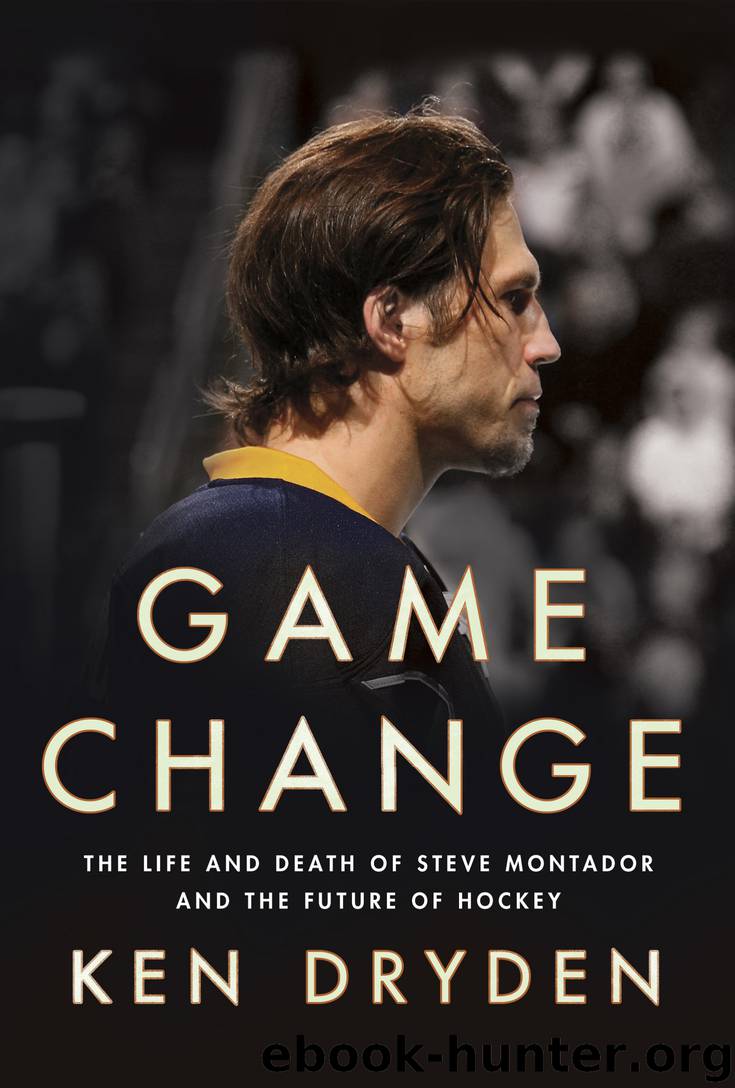Game Change by Ken Dryden

Author:Ken Dryden
Language: eng
Format: epub
Publisher: McClelland & Stewart
Published: 2017-10-17T04:00:00+00:00
CHAPTER FIFTEEN
Steve missed the first eight games of the Panthers’ 2007–08 season after having arthroscopic surgery on his knee during training camp. The team got off to another uninspiring start, and didn’t reach .500 until mid December, stayed there for two weeks, then didn’t reach the same level again until March. The team allowed thirty-one fewer goals than they did the season before, but also scored thirty-one fewer and never contended for a playoff spot.
Steve’s contract with Florida was up at the end of the season, and he was now a free agent. The Panthers had missed the playoffs for the seventh straight year. The team had changed coaches, made trades, signed veterans, waited for young players to improve, but the Panthers simply weren’t good enough. They needed some players that would make them better. Steve could play with better players. There were players like him even on Stanley Cup–contending teams, but he couldn’t make the Panthers better in the way they needed to improve. He also wanted to play on a contending team himself—he had had the taste of that in Calgary. The Anaheim Ducks offered him that chance, signing him to a one-year contract for $800,000, the same amount he had received in Florida. And California was California—flip-flops, shorts, and cafés on the beach.
The Ducks had won the Stanley Cup in 2006–07, and lost in the first round of the playoffs a year later. They had two young stars, Ryan Getzlaf and Corey Perry; three ageless wonders in Teemu Selänne, Scott Niedermayer, and Chris Pronger; and a big, tough supporting cast, led by George Parros, that had topped the league in total penalty minutes and fights the previous two seasons. “We were a rough and tumble team with no shortage of guys who could play and also drop their gloves,” Parros says. Steve was signed to help make the Ducks even more of what they already were and wanted to be. He dressed every game, played regular 5–6 defenceman time (over sixteen minutes a game), was second on the team in plus-minus, third in blocked shots, eighth in hits, and second in fights, with eleven (his last two with the Bruins) behind Parros—the highest total of his career.
The Ducks drifted back into the middle of the pack that season, yet they always seemed contenders. Their big names were still there. But their checking line—Sammy Påhlsson, Rob Niedermayer, and Travis Moen—so important to their Cup victory, was gone. In a salary-cap league, lesser players on a winning team can always find bigger contracts elsewhere. As well, the Ducks didn’t need to win as much as they had in 2007. The Kings had been L.A.’s team; they were in the first wave of NHL expansion in 1967; they had had Gretzky. But in 2007, the Ducks were the first California team to win the Cup—their Stanley Cup rings even said so. But having won so recently, they could lose and the sky wouldn’t fall. At the trade deadline and going nowhere, the Ducks sent Steve to Boston.
Download
This site does not store any files on its server. We only index and link to content provided by other sites. Please contact the content providers to delete copyright contents if any and email us, we'll remove relevant links or contents immediately.
Imperfect by Sanjay Manjrekar(5411)
Wiseguy by Nicholas Pileggi(4586)
Tuesdays with Morrie by Mitch Albom(3832)
The Body: A Guide for Occupants by Bill Bryson(3801)
Unstoppable by Maria Sharapova(3118)
Crazy Is My Superpower by A.J. Mendez Brooks(2860)
Not a Diet Book by James Smith(2726)
Into Thin Air by Jon Krakauer(2701)
The Mamba Mentality by Kobe Bryant(2668)
Finding Gobi by Dion Leonard(2259)
My Turn by Johan Cruyff(2244)
Tuesdays With Morrie by Mitch Albom(2172)
The Fight by Norman Mailer(2158)
Unstoppable: My Life So Far by Maria Sharapova(2128)
The Ogre by Doug Scott(2114)
Accepted by Pat Patterson(1917)
The Quarterback Whisperer by Bruce Arians(1845)
Everest the Cruel Way by Joe Tasker(1827)
Open Book by Jessica Simpson(1795)
